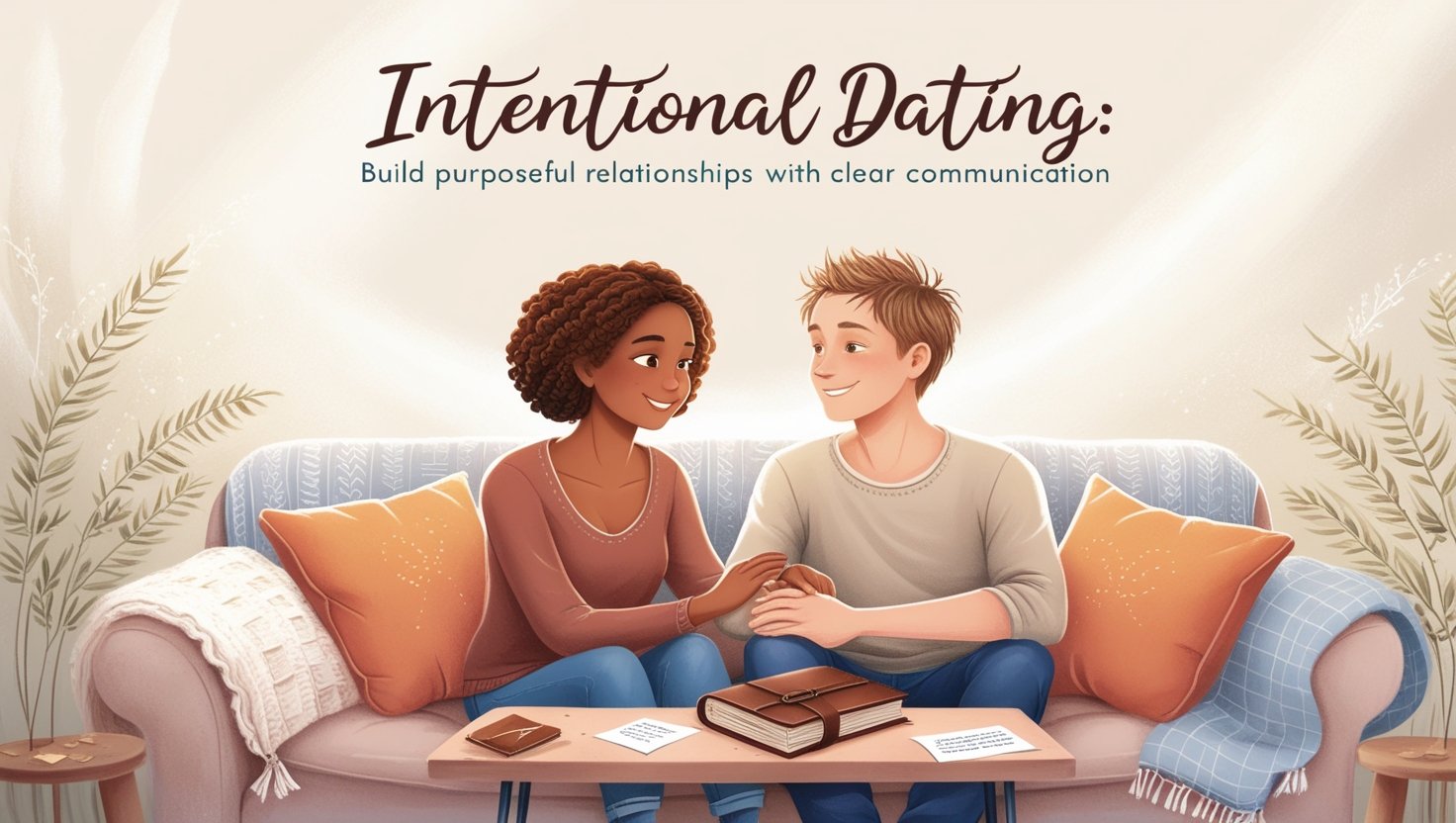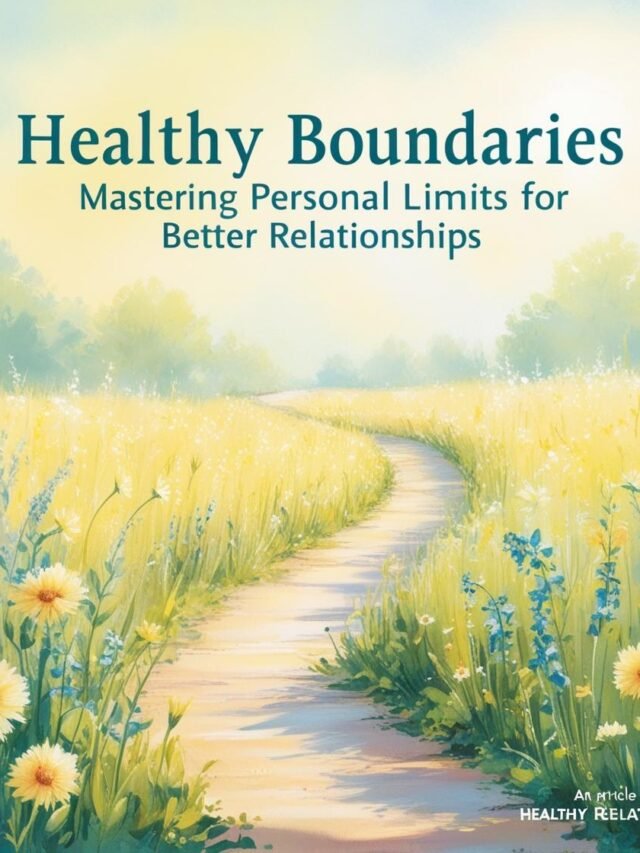Welcome to the world of intentional dating! In a time where swiping left or right can dictate your romantic fate, it’s easy to lose sight of what truly matters: building purposeful relationships. Intentional dating is all about clear communication and aligning your values with your partner right from the start. This approach fosters connections that are not just exciting but also meaningful. If you’re tired of aimless dating, get ready to discover how intentional dating might just be the refreshing change you need.
Understanding Intentional Dating

Definition and Importance of Intentional Dating
Intentional dating is more than just a buzzword in the dating scene—it’s a philosophy that invites individuals to engage in relationships with a purposeful mindset. Unlike casual dating, which often lacks long-term orientation, intentional dating focuses on developing relationships that are meaningful and lasting. The importance of this approach cannot be overstated in today’s bustling world where swiping right is commonplace and commitment can sometimes seem elusive.
So, what does it really mean to date intentionally? At its core, intentional dating is about being clear with yourself and your potential partners about what you truly want from a relationship. It includes taking the time to understand your own values, needs, and desires, and ensuring they align with those of your partner. The aim is to establish a foundation of mutual understanding and respect.
Embracing intentional dating can prevent a lot of heartache down the line. Instead of meandering through the dating pool, hoping something clicks, you’re choosing to be proactive and deliberate about who you invest your time and emotions with. This approach emphasizes quality over quantity, leading to deeper connections and more fulfilling relationships.
How It Differs from Casual Dating
Casual dating and intentional dating are like apples and oranges—each serves its own purpose, but they’re fundamentally different in approach and expectations. Casual dating typically involves going out with various people without a serious commitment to any future together. It’s often exploratory, aiming to have fun and meet new people without the heavy strings of obligation or long-term planning.
Intentional dating, on the other hand, operates on a much different wavelength. While both parties might still be getting to know each other, there’s a clear articulation of looking for a committed, potentially long-term partnership from the start. Here are some key differences between the two:
– Communication Levels: Intentional dating requires more open and honest communication from the beginning. Discussions go beyond surface-level topics and delve into values, life goals, and future aspirations.
– Commitment: While casual dating allows for multiple partners and flexible arrangements, intentional dating usually focuses on one person at a time to build a stronger, deeper connection.
– Purpose: Those engaging in intentional dating are actively seeking alignment in values and intentions, rather than simply exploring or having fun.
Acknowledging these differences is essential for choosing the path that aligns with your current life stage and relationship aspirations.
Benefits of Emphasizing Purposeful Relationships
Purposeful relationships, cultivated through intentional dating, come with a wealth of benefits that can enrich your life both personally and socially. For starters, having a clear understanding of your partner’s values and life goals creates a stable foundation that’s less likely to crumble under pressures of misunderstanding or misaligned priorities.
Here are some benefits of focusing on purposeful relationships:
1. Deeper Emotional Connections: With intentional dating, you are fostering relationships that go beyond physical attraction, creating bonds that are mentally and emotionally satisfying.
2. Reduced Confusion: There’s less guesswork involved as both parties have communicated their intentions and expectations clearly from the beginning. This clarity helps avoid the common pitfalls of guessing where the relationship is going.
3. Improved Conflict Resolution: With aligned values and open communication, resolving conflicts becomes easier and more effective, as both partners are working towards the same relationship vision.
4. Time Efficiency: You’re not wasting time on partners who don’t see a future in line with yours, allowing you to invest in and cultivate what truly matters to you.
Investing energy into building purposeful relationships through intentional dating promotes healthier and more satisfying partnerships that stand the test of time.
Communicating Intentions Clearly

The Role of Honesty and Transparency
When it comes to intentional dating, honesty and transparency form the bedrock of successful communication. Being upfront about your intentions not only helps in attracing partners who share similar values but also keeps the dating process respectful and sincere.
Honesty in this context means sharing your expectations and what you are looking for in a relationship without any ambiguity. Transparency involves being open about your experiences, your current life situations, and any potential challenges you might foresee in the relationship. These elements together help build trust, a crucial component for any serious relationship.
Practicing honesty and transparency might seem daunting, especially if you’re accustomed to keeping your cards close to your chest. However, it’s worthwhile to remember that sustainable relationships are rarely built on half-truths or omissions. Here are a few tips for cultivating these qualities:
– Self-Reflection: Take some time to think about what you really want. Before you can communicate your intentions, you need to know them yourself.
– Open Conversations: Approach conversations with potential partners with a mindset to share openly while also being receptive to their truths.
– Consistent Actions: Ensure that your actions consistently reflect your words, reinforcing your commitment to transparency.
By embracing honesty and transparency, you pave the way for more genuine interactions that foster trust and a deeper connection.
Setting and Expressing Personal Goals in Dating
Part of effective communication in intentional dating involves setting and expressing your personal goals. Clearly articulated personal goals act as a roadmap in dating, guiding conversations and interactions with potential partners.
Setting personal goals allows you to focus on what’s truly important, such as finding someone who shares your passion for family, aligns with your lifestyle, or supports your career aspirations. It’s not just about what you need from a partner but also how you envision the relationship contributing to your growth and happiness.
When expressing these goals, be clear yet flexible. It’s important not to appear too rigid, as dating is an evolving journey that might shift your priorities. Here are some ways to express personal dating goals:
– Direct Communication: Voice your goals casually in conversations to make them known without making it seem like a business transaction.
– Active Listening: Pay attention to your partner’s goals to gauge compatibility and areas of alignment.
– Regular Check-Ins: As the relationship progresses, revisit these goals together to ensure you’re still on the same path.
Setting and communicating personal goals in a relationship ensures both parties are heading towards the same future, minimizing mismatched expectations.
Navigating Conversations about Intentions and Expectations
Conversations about intentions and expectations don’t have to feel like walking on eggshells. In fact, they can be empowering and enlightening if handled with care and understanding. Such discussions are a staple in intentional dating, where both partners aim to fully grasp where they stand with each other.
Starting these conversations might feel intimidating, particularly early in a relationship. However, delaying such talks can lead to future misunderstandings or resentment. Navigating these waters smoothly involves finding a balance between being direct and empathetic.
Here are some strategies to facilitate these conversations:
1. Choose the Right Time and Setting: Opt for a relaxed environment where both parties feel comfortable. It’s better to have these conversations when you’re both relaxed and not rushed.
2. Frame Positively: Initiate the discussion with a positive angle. For example, you might start with, “I really value our time together, and I’ve been thinking about what I’m seeking in a long-term partner.”
3. Be an Active Listener: Show respect for your partner’s viewpoint. Listen without interruption and acknowledge their feelings and perspectives.
4. Respect Differences: Understand that your partner’s expectations might not fully align with yours. Use these opportunities to discuss and decide if there’s a workable compromise.
5. Establish Boundaries: Discuss boundaries that respect both partners’ needs and address how to meet each other halfway.
By having these candid discussions about intentions and expectations, you lay the groundwork for a more harmonious and aligned relationship. Purposeful conversations cultivate a mutual understanding that is essential for any successful partnership.
Ultimately, intentional dating is about deliberately choosing to engage in relationships that resonate with your true self and aspirations. Communicating openly, aligning values, and being clear about intentions are steps that can transform your dating experience into a fulfilling and joyous journey toward love and companionship. Embrace these principles, and you’re more likely to find a partner who truly complements your path.
Aligning Values in a Relationship

When it comes to intentional dating, understanding and aligning values is key. Values are the guiding principles that influence our decisions, actions, and attitudes in life. They shape who we are and, by extension, how we connect with others. In relationships, having aligned values can help build a stronger, more harmonious partnership.
Identifying Core Values and Their Importance
Before you can align your values with someone else’s, it’s crucial to identify your own core values. But what are core values anyway? Simply put, they’re the non-negotiables that define what truly matters to you. These could be anything from honesty and loyalty to adventure and creativity.
Here’s why it’s so important:
– Decision Making: Knowing your core values helps in making significant relationship decisions effortlessly. When faced with choices, your values act as a compass to guide your way.
– Conflict Resolution: In moments of disagreement, shared values help find common ground, making conflicts easier to resolve.
– Personal Fulfillment: Living according to your values brings satisfaction and happiness, both of which are vital in any relationship.
To identify your core values, reflect on past experiences, what made you happy, or even what you couldn’t tolerate. Jot down these insights, and you’ll be surprised at how illuminating this practice can be.
Strategies for Discussing Values with a Partner
Once you’ve got a strong handle on your own values, the next step is aligning them with your partner’s. But how do you break the ice and start such a potentially daunting conversation? Here are some strategies to ensure you’re both on the same page:
– Create a Safe Space: Choose a comfortable environment, free from distractions, where both of you can talk openly and honestly without feeling judged.
– Be Honest and Vulnerable: Share your values openly and encourage your partner to do the same. It’s important to be sincere and avoid downplaying your beliefs to fit into a perceived mold.
– Use Open-Ended Questions: Rather than yes/no questions, try asking, “What do you value most in a friendship?” or “How important is family to you?” These are conversation starters that encourage meaningful dialogue.
– Listen Actively: Pay close attention to what your partner shares. It’s not just about asking but truly understanding their perspective and being empathetic.
Remember, talking about values isn’t a one-time conversation; it’s an ongoing dialogue that might evolve as your relationship progresses.
The Impact of Shared Values on Relationship Success
Having shared values doesn’t just help smooth daily interactions; it can be the foundation for a successful, long-lasting relationship. Here’s how shared values have a transformative impact:
– Deeper Connection: When both partners stand united with common beliefs, there’s a genuine understanding and respect, fostering a deeper emotional bond.
– Enhanced Trust: Knowing that you and your partner value similar principles builds trust and reliability, crucial components of any successful relationship.
– Life Alignment: Whether it’s deciding on career shifts, parenting styles, or financial goals, shared values streamline decision-making, leading to a more harmonious life path together.
Relationships flourish when partners can lean on shared values during both the ups and downs. This alignment is a powerful force in establishing longevity and satisfaction in a partnership.
Overcoming Challenges in Intentional Dating

Even with the best of intentions, dating can bring its share of hurdles. Intentional dating—while rewarding—requires navigating through challenges, especially when faced with rejection, perseverance, and communication hiccups.
Handling Rejection and Differences in Values
Rejection is a part of dating, intentional or otherwise. When someone doesn’t share your values, the sting of rejection can feel personal. However, recognizing that not every relationship will align perfectly is crucial.
Here’s how to handle it:
– Embrace Rejection as Redirection: When one door closes, it’s an opportunity for growth and finding someone whose values resonate more closely with your own.
– Reflect, Don’t Ruminate: Take time to understand what didn’t align but avoid dwelling on it excessively. Use this reflection as a learning opportunity.
– Stay True to Yourself: It’s tempting to adjust your values in hopes of pleasing someone else, but staying authentic is important for your own wellbeing and future relationships.
Maintaining Patience and Positivity
Intentional dating isn’t a sprint; it’s more akin to a gentle stroll. Patience is vital, as is maintaining a positive outlook, even when faced with setbacks.
Here are some tips:
– Trust the Process: Remember that finding the right partner is a journey. The effort you put into staying true to your values will be rewarded in time.
– Celebrate Small Victories: Recognize and appreciate the progress you’ve made in understanding yourself and what you’re looking for in a partner.
– Stay Open to Possibilities: Keep an open mind. Sometimes what you’re looking for comes packaged in unexpected ways.
A positive mindset nurtures happiness and naturally draws like-minded individuals to you, increasing the chances of meeting someone who shares your values.
Dealing with Miscommunication
Miscommunications can be a common hurdle but are especially important to address in intentional dating where clarity is key.
Here’s how to manage miscommunications effectively:
– Clarify Intentions Early: Don’t leave intentions ambiguous. From the start, be clear about what you’re looking for and encourage openness from your partner.
– Use ‘I’ Statements: When discussing issues, focus on how you feel rather than placing blame. For example, say, “I feel unset when…” instead of, “You always…”
– Seek to Understand First: Before jumping into conclusions, ensure you completely understand your partner’s perspective. Ask questions and summarize their points to show you’re listening.
– Set Healthy Boundaries: Clearly outline and respect each other’s boundaries, reducing the likelihood of future miscommunications.
By fostering an environment of open communication, both partners can navigate through misunderstandings more effectively.
Intentional dating creates a meaningful pathway to developing enduring, fulfilling relationships built on clear communication and aligned values. While challenges may arise, by maintaining authenticity, patience, and understanding, you enhance your journey towards finding a partner who shares not just your ideals, but your vision for a shared future.
Conclusion
Intentional dating invites us to step into a journey where our relationships are not just byproducts of chance but are defined by clear intentions and values that truly matter. It teaches us to communicate candidly about what we want and need, fostering stronger connections with potential partners. By prioritizing openness and alignment in values, we’re not only paving the way for deeper, more fulfilling partnerships but also nurturing personal growth. Happy intentional dating!
How to Reconnect with Old Friends| Tips to Rekindle Friendship








